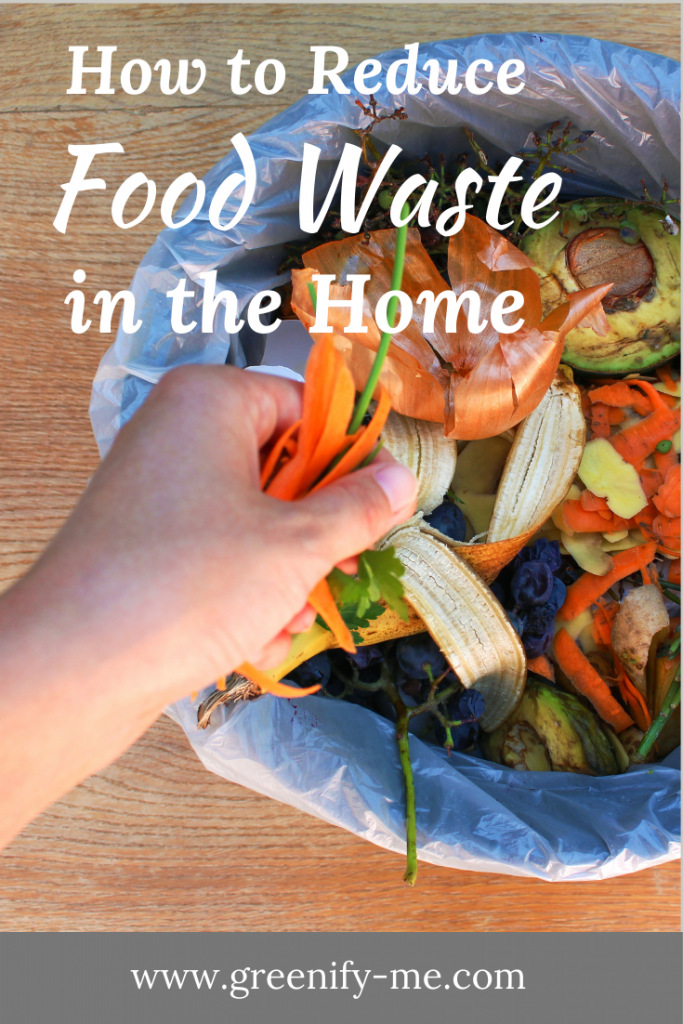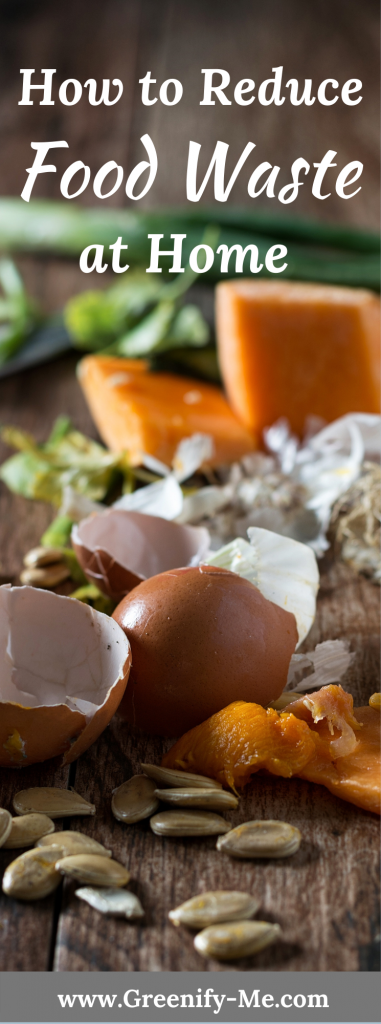Americans throw away $165 billion of food each year. That’s equal to around 40% of all food that is produced in the United States! Most wasted food ends up in landfills where the NRDC says organic matter accounts for 16% of U.S. methane emissions. Furthermore, all of that wasted food could feed many of the 46.5 million Americans (that’s one in seven Americans) who use food banks. In this article, we look at 5 easy ways that you can reduce food waste in your home.
This is a guest post by The Swag, a brand that creates 100% natural cotton bag designed to keep fruit & veg fresher for much longer.
How to Reduce Food Waste in the Home

1. Make a shopping list and stick to it.
It all starts before food is even brought into the house. When you’re in a supermarket, you’re surrounded by so many options of things that you don’t need that it’s easy to get distracted. By creating a list, you can head straight for what you need and avoid aimlessly wandering the aisles. You’ll be surprised how much time and money a simple list can save.
2. Don’t be picky with your fresh produce.
The trend of customers choosing their produce based on looks alone means that thousands of tonnes of good fruits and vegetables are discarded before they even leave the farm. By purchasing from the “ugly fruits” section (or the equivalent in your town), you can help to reverse this trend and show that there really is a market for not-so-perfect looking produce. As an extra bonus, shopping from this section will usually save you 50% or more!
3. Limit your visits to the grocery store.
Once you’re used to shopping with a list, this becomes much easier. Limiting your grocery shop to once per week can force you to eat what you have in the home and be creative with your meals, reducing food waste and saving you money. Rather than going out to buy parsley for your meal garnish, could you replace it with another vegetable that you have in the fridge?
4. Store food properly.
All food should be stored properly to maximize its shelf life. It does take a bit of research to learn which food should be stored in which way, but there are some easy tips to make it easier. Generally, similar foods can be stored together (eg. leafy greens with leafy greens), root vegetables should be stored in the dark, and most foods last longer in a cool, dry environment. Specialist storage containers such as these fresh product storage bags by The Swag Australia can help prolong shelf life by up to 2 weeks, thereby reducing food waste in your home.
5. Avoid overstocking up your storage areas.
Filling up your fridge and pantry to a point where some of the items in them are out of sight will ultimately result in some foods being forgotten and eventually going bad. Where you can’t avoid overfilling, it is wise to implement a ‘First In, First Out’ (FIFO) storage system, which will allow older purchases to be consumed first. Whilst bulk-buying may save money at the time of purchase, if all this produce expires then there was really no saving to be had!
Ready to kiss food waste goodbye?

Want more tips on how to waste less food? Grab my ebook “How to Reduce Food Waste” and save $1500 every year! Plus, gain access to 14 delicious zero waste recipes.

Is there something that we’ve missed? Please share your own tips to reduce food waste in the comments!

Guest Post: The Swag is an Australian patented design that keeps your produce fresher for longer. Made of 100% unbleached, unseeded cotton, it’s a simple way to reduce food waste in your home.


Love this post! I’ve definitely been shopping a lot less to reduce how many groceries I bring in.
Thanks so much! 🙂 That’s a great strategy to cut back on food waste too! Do you compost too?
Thank you for the tips
My two cents: one of my wastes used to be leftover salsa, pesto and the like, which I forgot to eat before it went stale. Somewhere I read that the trick is freezing it, it works for me.
That’s a good trick! I’ve never heard of that, but that absolutely works. You can also freeze herbs by ripping them up, putting them in an ice cube tray, and adding your favorite cooking oil. This creates herb-infused cooking oil cubes you can cook with on the fly! Great way to reduce herb waste too. 🙂